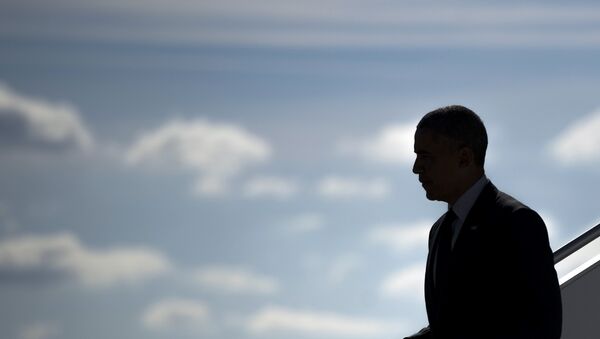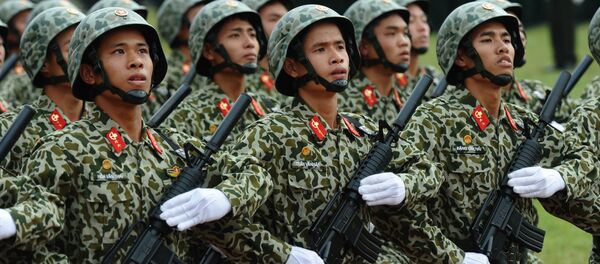"Our [US] growing partnership with Vietnam is happening entirely independent of China," Obama stated when asked about warnings from China that the United States and its allies were creating a "tinderbox" in the region.
On Monday, Obama announced the United States would lift the 50-year-old arms embargo on Vietnam. The decision comes amid heightening tensions between the United States and China over what Washington sees as Beijing’s militarization of the South China Sea.
"The fact that China would perceive that [cooperation with Vietnam] as some sort of provocation to them I think says more about Chinese attitudes than it says anything about our [US] attitude," Obama noted.
The US-Vietnam relationship is based on mutual interests, including expanding trade and enhancing cooperation in a range of areas, Obama emphasized.
Chinese Foreign Ministry spokeswoman Hua Chunying said earlier this week that Beijing welcomes the thaw in US-Vietnamese relations, and added that arms supplies restrictions on Hanoi were a product of the Cold War that needed to be removed.
On Tuesday, Beijing's state-run news agency China Daily said in an editorial that the United States and Vietnam must avoid sparking a regional "tinderbox." The article noted that Obama’s visit to Vietnam had already "born fruit" in the form of lifting the arms embargo on Hanoi.
The South China Sea contains a number of disputed islands, including the Paracel Islands and the Spratly Islands. Vietnam has been a vocal claimant to disputed territory in the South China Sea, where China has built up a military presence in recent years.
Obama is visiting Japan to attend the two-day G7 Summit set to begin on Thursday in the city of Ise-Shima, and plans to visit the city of Hiroshima before departing on Friday. The US president is on the second leg of a weeklong trip to Vietnam and Japan.



